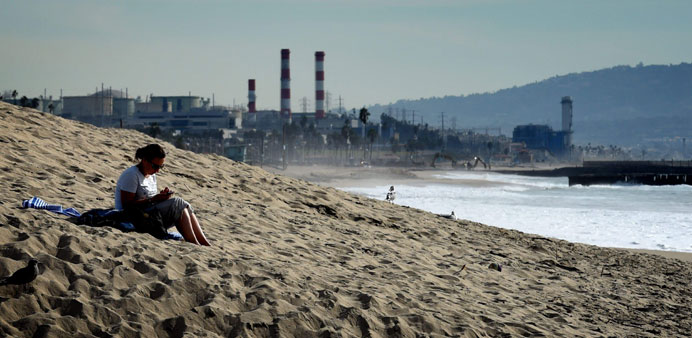Thomson Reuters Foundation/Paris
The US will contribute $30mn to climate risk insurance schemes in the Pacific, Central America and Africa, President Barack Obama announced at a meeting with leaders of small island nations in Paris yesterday.
The US Department of State said the money was part of a broader set of actions to help vulnerable people become more resilient to climate change.
They include providing climate data, tools and services, and incorporating climate change considerations into development assistance, it added.
The funding will increase insurance coverage to help people cope with severe climate-related problems, Washington said. Those range from intensifying droughts, floods and storms to melting glaciers and rising seas.
Amjad Abdulla of the Maldives and chief negotiator for the Alliance of Small Island States (AOSIS) - whose members are already suffering from storm surges, higher tides and erosion of their shores - said the new money was “a sign of progress” at the UN climate summit in Paris this week and next.
“We now encourage our partners to recognise the full scale of the challenge we face and help us tackle it together,” he added in a statement.
The US assistance is a step towards the goal G7 leaders set this summer to increase by up to $400mn by 2020 the number of people in the most vulnerable developing countries with access to insurance to help them deal with climate risks.
The new money will support the Pacific Catastrophic Risk Assessment and Financing Initiative and the African Risk Capacity programme, and expand the Caribbean Catastrophic Risk Insurance Facility to cover Central American countries.
G7 governments, led by Germany, are set to provide more details of how they will meet their climate insurance goal later this week.
In June, Germany said it would provide 150mn euros ($170mn) to kick-start the initiative and motivate involvement by the private sector.
Saleemul Huq, director of the Dhaka-based International Centre for Climate Change and Development, welcomed the US contribution.
“It is also important to note that it is an implicit acceptance of the notion of paying for loss and damage because that is what climate insurance is,” he said.
That concept is a controversial one at the UN talks tasked with agreeing a new global deal to tackle climate change.
A UN body on loss and damage is due to start working out how to combat the effects of climate change that are almost impossible to adjust to, such as rising seas and creeping deserts. It will explore solutions such as insurance.
Some 134 developing countries want an international mechanism for loss and damage to be part of a binding Paris deal.
But that is opposed by some industrialised countries, including the US. They fear it could be used as a way of holding them financially liable for climate change impacts.
The insurance announcement comes on the heels of a US contribution of around $51mn to an international fund for adaptation to climate change in the least developed countries, announced on Monday.

A woman sits on a sand berm created by city workers to protect houses from El Nino storms and high tides at Playa Del Rey beach in Los Angeles on Mond
